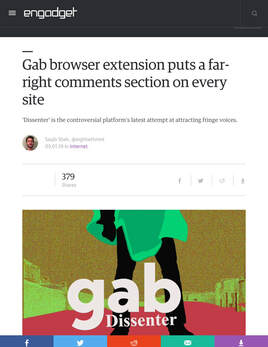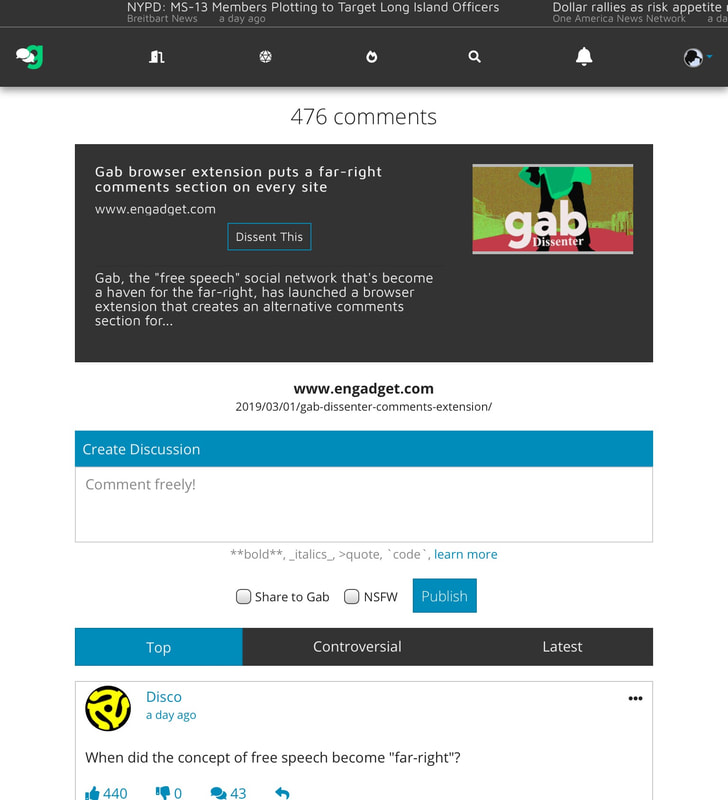|
Were you on the internet in the early days? If so, you may remember that it felt free and undeveloped - something like the Wild West. It was exciting. There was an unconstrained, uncharted world to explore, with few boundaries and limitless possibilities. For those of us who revel in the unfettered exchange of ideas, it was thrilling. However, the internet today feels more like Alcatraz than the Wild West. There are a relatively small number of information gatekeepers who keep a short leash on the users of their sites. Big Media and Big Social like to control what is known and how it is presented. The crackdown has been ratcheted up to an even greater level since the upset election of Donald Trump in 2016, which was possible in large part to the ability of independent reporters and everyday internet users to bypass the controlled communications of the legacy media. Our rulers were caught off guard once, and they do not intend to let that happen again. The tactics for keeping troublemakers from influencing the rest of the population are many. They include banning or shadow-banning disfavored users, deeming content ineligible for advertising dollars, and putting a thumb on the scale for common search terms so they will return items meant to point users to the "right" opinion. Additionally, many sites have removed content sections from underneath their articles, citing "troll" problems. In other words, there were too many people expressing disagreement, pointing out bias, or enlightening other readers about omitted facts. Of course there are still some ways to express dissenting opinions, for example, you may develop and maintain a blog and manage to build a following while staying under the radar of the gatekeepers. However, this would be too much trouble for most people who just want to make occasional comments, and it's also an inefficient way to address topical or urgent issues. Thankfully, the free-speech defenders of social media site Gab have come up with a "why didn't I think of that?" game-changing idea: They introduced their Dissenter platform, which provides users a new way to comment, without censorship, on ANY page on the internet. You can create an account at Dissenter.com, or log in with your Gab ID if you already have one, then enter the URL for the page on which you wish to comment. You can start a conversation, or join in if a discussion is already ongoing for the selected page. Dissenter also has extensions that can be added to a number of different browsers for easier use. There are many possibilities for using Dissenter beyond commenting on news articles. For example, the commonly used resource Wikipedia is known as a bastion of leftist ideology. Pages about controversial issues are often closely watched, and any efforts to put information supporting disfavored viewpoints are quickly thwarted. The new comment function could be extremely useful for Southerners vexed by one-sided, distorted accounts of our history. Today I ran quick check of some controversial issues in Southern history, and did not find any comments yet. Hopefully knowledgeable people can provide omitted evidence and correct misinformation. Of course, it will only be viewable to other Dissenter users, but anyone who is curious about alternative viewpoints can choose to look there. So far the right people are getting angry, which is always a good sign. (I particularly enjoyed this indignant rant from Ana Valens in the Daily Dot.) For the rest of us, those who aren't afraid of words and ideas, this new site provides a small return to the feeling of the Wild West. Yippee ki-yay!
0 Comments
Leave a Reply. |
AuthorThe Carolina Contrarian, Anne Wilson Smith, is the author of Charlottesville Untold: Inside Unite the Right and Robert E. Lee: A History Book for Kids. She is the creator of Reckonin' and has contributed to the Abbeville Institute website and Vdare. She is a soft-spoken Southern belle by day, opinionated writer by night. She loves Jesus, her family, and her hometown. She enjoys floral dresses and acoustic guitar music. You may contact Carolina Contrarian at [email protected]. Archives
April 2024
|



